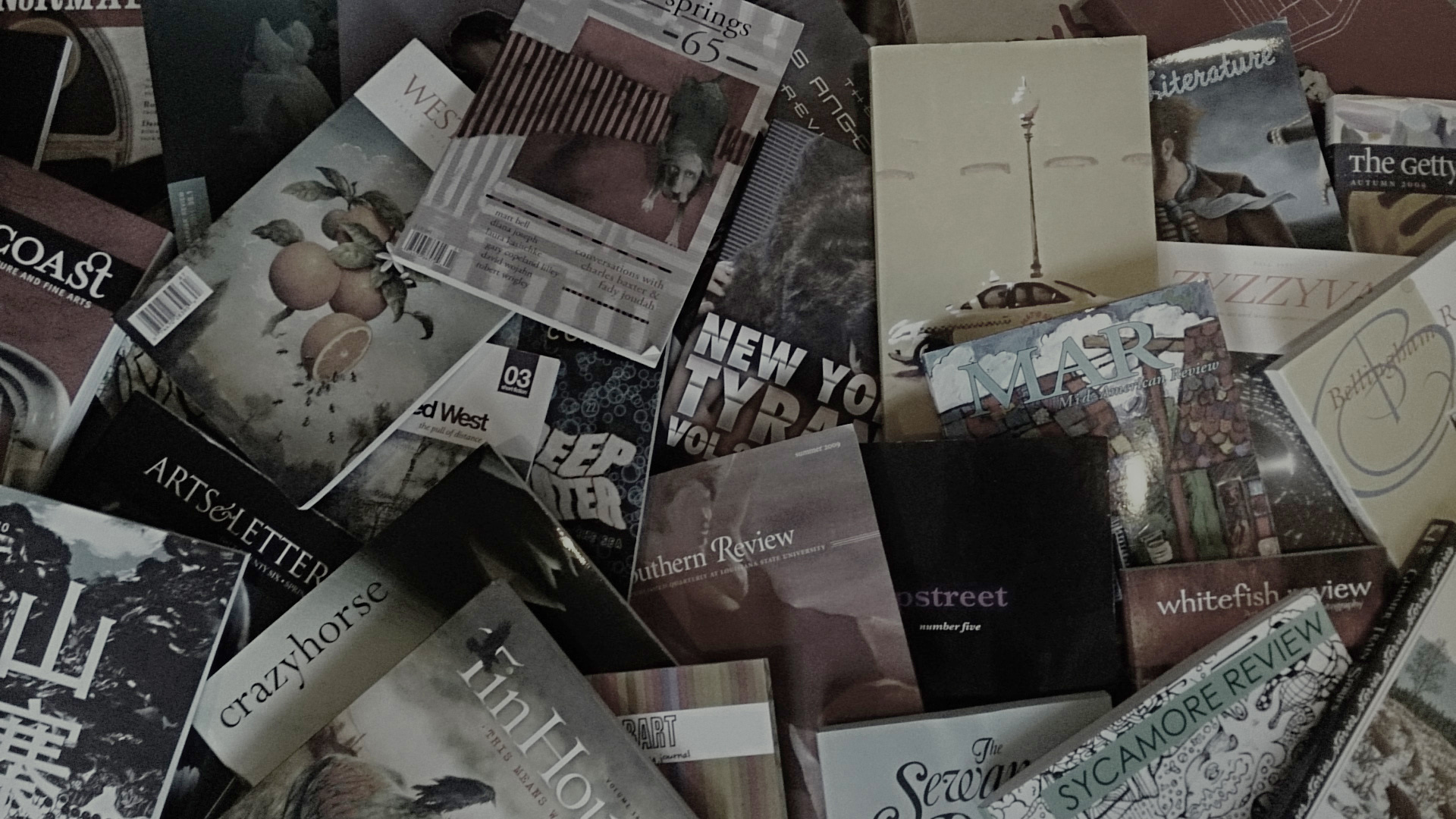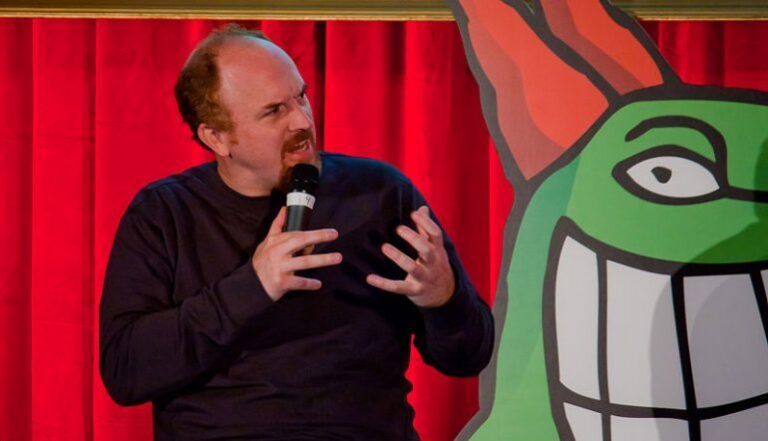The Best Short Story I Read in a Lit Mag This Week: “Men and Women Like Him” by Amber Sparks

In “Men and Women Like Him” (Guernica), Amber Sparks explores dark tourism from the perspective of a time traveling tour guide who must ensure that historical tragedies don’t change—even when those tragedies become personal.Sparks drops us right into scene in the first couple paragraphs, letting the action and scenario reveal much of the situation at hand.
“It’s raining when Hugh arrives at the gates of Jerusalem, and the skirmish is already well underway. Roman legionnaires are hacking at faceless creatures in dark blue skin suits. The skin suits are shooting back with laser cannons. The bone-thin, nailed-up figure moans and bleeds, the usual morbid backdrop to this muddy melee.
Hugh sighs. He affixes his pocket amplifier, tells the time pirates that if they don’t stop shooting and come quietly, they’ll all be neutralized…”
The protagonist Hugh is a Cleaner, someone who guards history from being altered by groups like the aforementioned time pirates wearing dark blue skin suits. In this case, he has the unenviable job of ensuring that the crucifixion of Jesus Christ continues as planned. Summarizing it here makes the scenario seem more sensational than it actually reads, and this is due to the fact that Sparks stays so close to the narrator’s experience—case-in-point, the anticlimactic sigh.
Hugh, we discover, has been a Cleaner now for a decade, and is understandably weary of maintaining atrocities such as the Holocaust, the Children’s Crusade, and the Black Plague. But Sparks also ties the nature of his weariness into the broader concept.
“Of course, you don’t really leave the Cleaners. It’s too hard to adjust, after, to the slow molasses of real time wrapping itself around you. It’s too hard to count the seconds, the minutes, time steadily stalking forward, leaving you behind. It’s hard to be the fly trapped in amber.”
While the horrific repetition of atrocities wears on the Cleaners, it is also what constant time traveling does to the present time—turning it into its own sort of cage.
A difficulty in high concept narratives—and particularly short stories, where compression is a concern—is having to explain the rules of a world different from our own without it feeling like the info is being dumped by the author. Sparks navigates this difficulty by revealing the history and rules of time traveling amidst the antagonism of general public perception, cloaking the necessary backstory in conflict.
“When the time machines were new, the public was furious they couldn’t visit the future. No matter how many times the scientists patiently explained about fixed and unfixed points in time, about the instability swirling around an unfixed point, the public didn’t get it. They were even angrier that they couldn’t change the past. They wouldn’t listen…they planned trips to save Lincoln, to kill the slavers…They wanted to bring penicillin to the Plague, and artificial limbs to Civil War battlefields…”
After the broader backstory, Sparks quickly grounds us in the personal tragedies of Hugh.
“A year ago he brought the pox blankets back to the natives after a well-meaning group of illegal tourists stole them away. On return he had a sort of quiet breakdown. He took a month of leave, sat around eating garbage and watching TV, stared at the place in his wall where he put his fist through after his wife walked out. After they lost their little girl to the Avian Flu Pandemic.”
Hugh has suffered great loss and there’s nothing he can do to change it; the terrible irony, or course, is that it’s his job to ensure other people’s personal tragedies remain. Sparks reveals how this contradiction eats away at him.
“Sometimes he wonders if it would really be so bad, letting people flood into history like a tidal wave and sweep away the worst of it. Sure, the paradoxes would destroy us, but so what? Did a world that let happen the Holocaust and Hiroshima and the Trail of Tears and Stalin and Genghis Khan and Pol Pot deserve to be spared?”
Is the world worth saving? Hugh’s job demands that he answer this question in the affirmative daily, but Sparks develops the plot in such a way that her protagonist’s conviction is tested, both personally and professionally. Hugh discovers that his co-worker is visiting the site of one of his relative’s deaths.
“Where you off to this morning? he asks.
Theresienstadt, she says, and frowns. A hypothermia epidemic, November ’43.
Theresienstadt. The name the Germans gave to Terezin, long ago christened after the Emperor’s mother. Hugh’s Czechoslovakian great-aunt is still there in 1943, just shy of her sixth birthday. She acts in the little plays they put on at the camp for the Red Cross officials. She still, despite everything, loves to sing. In time, in this machine-bound stretch of time, she is still alive; it is documented, it is a fact. It is a gift.
Hey, I just have Caesar’s assassination today, he says. Let me switch with you. Please?”
She says no, but he goes ahead anyway, in an attempt to save the life of his great-aunt. Notice his reasoning at the end.
“And now he understands the tourists. He knows, even in the blur he knows they’ll come for him, they’ll find her, they’ll make sure she’s on that cattle car in 1944. But for right now—for an hour maybe, for a minute, for just one revolution of the second hand in space—he’ll have sounded a note, he’ll have saved a life, he’ll have wiped a stain from history before the men and women like him come and put it all to wrong once more.”
Though we can’t travel time yet, we can travel through the world’s daily tragedies with a click of a button. Who hasn’t felt helpless? Overwhelmed? And amidst it all, who hasn’t felt as though their own personal stake in the world is far to small to really change anything? The implied question of this story is a question many of us are grapple with daily, as tragedy after tragedy runs through our newsfeeds: what can I do when it seems as though nothing can be done?
Hugh—and Sparks—provide an answer to that question, and leave it up to us whether we think the answer is heroic or foolish.


